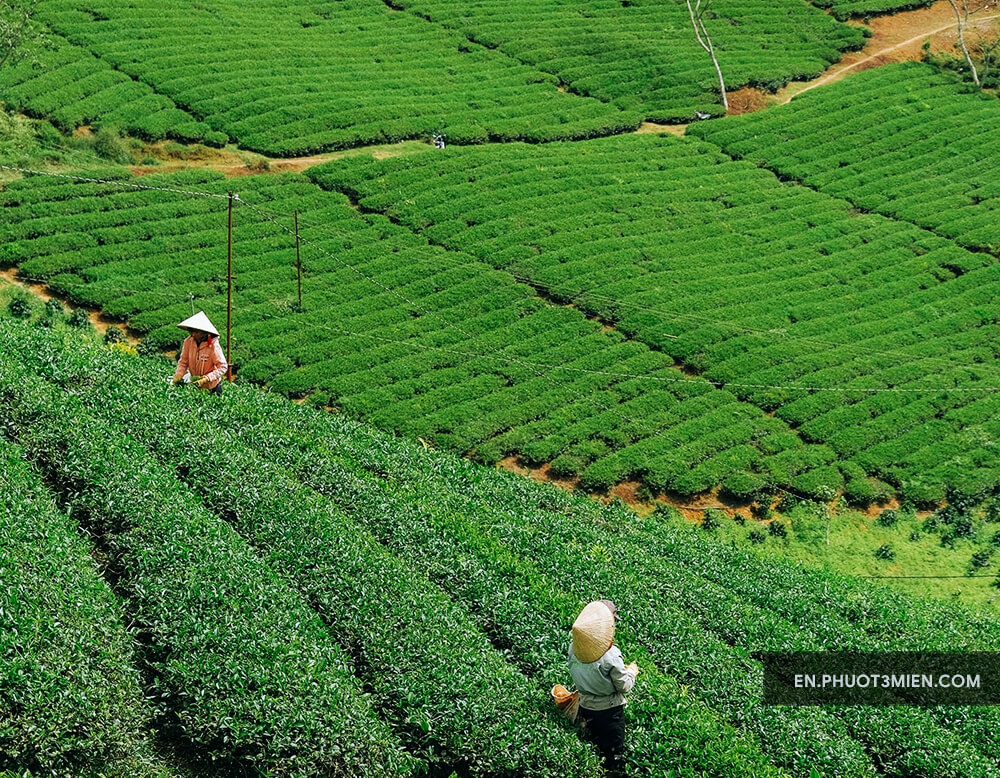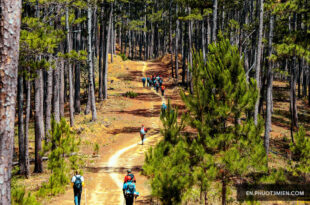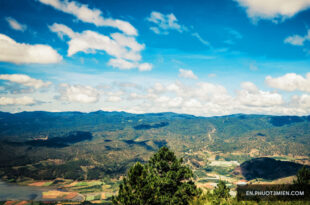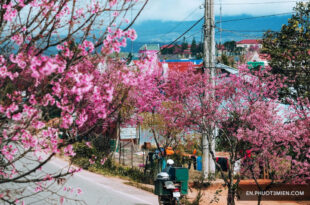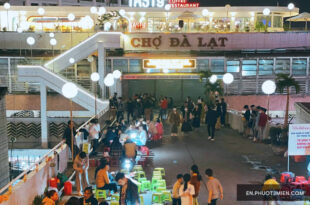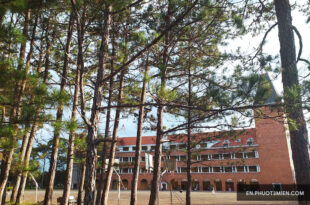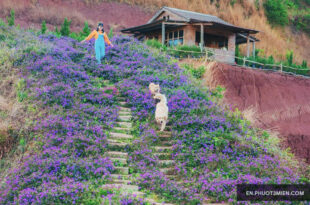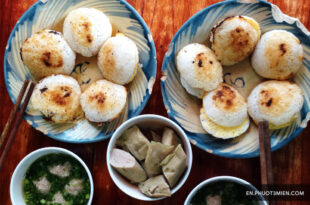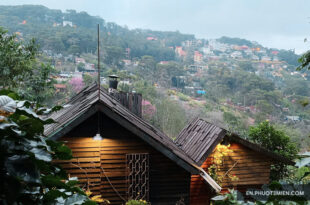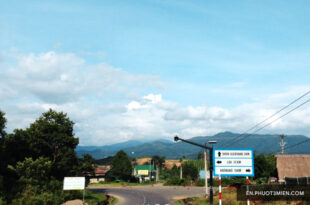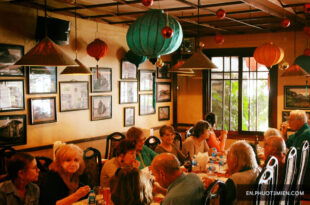Even if you are not fascinated by coffee, you should keep reading. But if you are into an eco-friendly lifestyle, this article about Da Lat coffee farms will be of interest to you. Love coffee? Then don’t ever miss out on visiting Da Lat! Somebody once told me life is a journey. This journey doesn’t literally mean constant travel, but rather it alludes to the idea that we should enlarge our minds with more places and enhance our hearts with the love we receive and the love we give. In this article, we will walk through several coffee farms in Da Lat to see how a group of us, the Vietnamese, is trying to make an effort on improving the coffee quality, the farmers’ lives, and also the health of our exhausted Earth. I’m sure you will find lots of warmth and love once you are there.
An Overview
We Vietnamese consume coffee on a daily basis. According to the International Coffee Organization, 250,000,000 kilograms of coffee were consumed every day all over the world in 2016, roughly 1,500,000,000 kilograms of fresh beans. Among that huge number, Vietnam is the world second largest coffee exporter. Hence, if your trip to Vietnam is to explore local life, bypassing coffee farms is a big mistake. But which farm to choose? It would be more knowledgeable and worth your trip if you could spot out farms that are following a healthy production standard (Fair Trade Certificate for example)! You will talk to local farmers, feel how they are enjoying their life making an honest living, learning from them about their healthy production processes (a clean standard and without chemical overuse), and, most importantly, figure out how your drinking habit can be for or against Mother Nature.
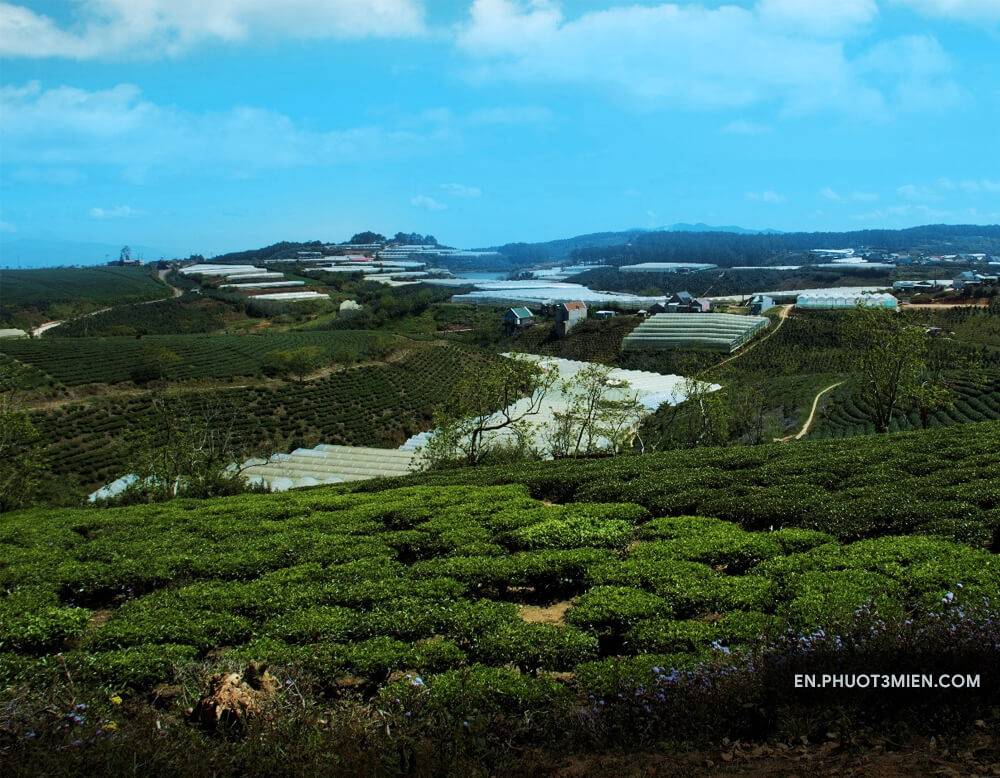
Among regions that grow coffee in Vietnam, Da Lat is the most accessible and popular for visitors, making it easy for you to join a tour. In 1875, upon realizing that the natural conditions in Da Lat were ideal for the growth of Arabica coffee, the French brought this high-class coffee into town to grow and export worldwide. The region has been home to this superior coffee since then. This glorious past couldn’t secure the coffee industry of the future. Da Lat’s coffee industry deflated during the previous decades due to the out-of-date growing method. Lots of farmers gave up on their farms.
Fortunately, in recent years, a wave of clean coffee production has shaken the stagnation in town, led by La Viet café. Da Lat today is on the move to producing a sustainable, high-quality coffee supply for the global trade. Starbucks has even taken notice and Da Lat coffee is now part of its supply chain. It’s the farmers, traders, officers, and consumers who stand on the side of clean coffee production that made the incredible shift!
In Da Lat, you, in addition to visiting waterfalls, lakes and hills, now have had another different kind of opportunity to blend into nature. Make your time to visit one of the farms mentioned below (or more if you could find), and you will find your heart singing joyfully.
K’ho Farm
Ms. Rolan Co Lieng and Mr. Joshua Guikema (her husband) are the admirable and amazingly enthusiastic founders of this K’ho Farm. With lots of love and passion for K’ho people, Ms. Rolan is determined to make K’ho Coffee well-recognized as a typical high-quality coffee brand in Vietnam and the rest of the world. Apart from growing different types of Arabica, including the exceptional Pacamara species, K’ho coffee ensures the production of their specialty coffee is strictly controlled and manually processed. You can book with them for a day or take a half-day tour to experience the farm, taste the coffee, and learn how people are changing their life with eco-friendly production.
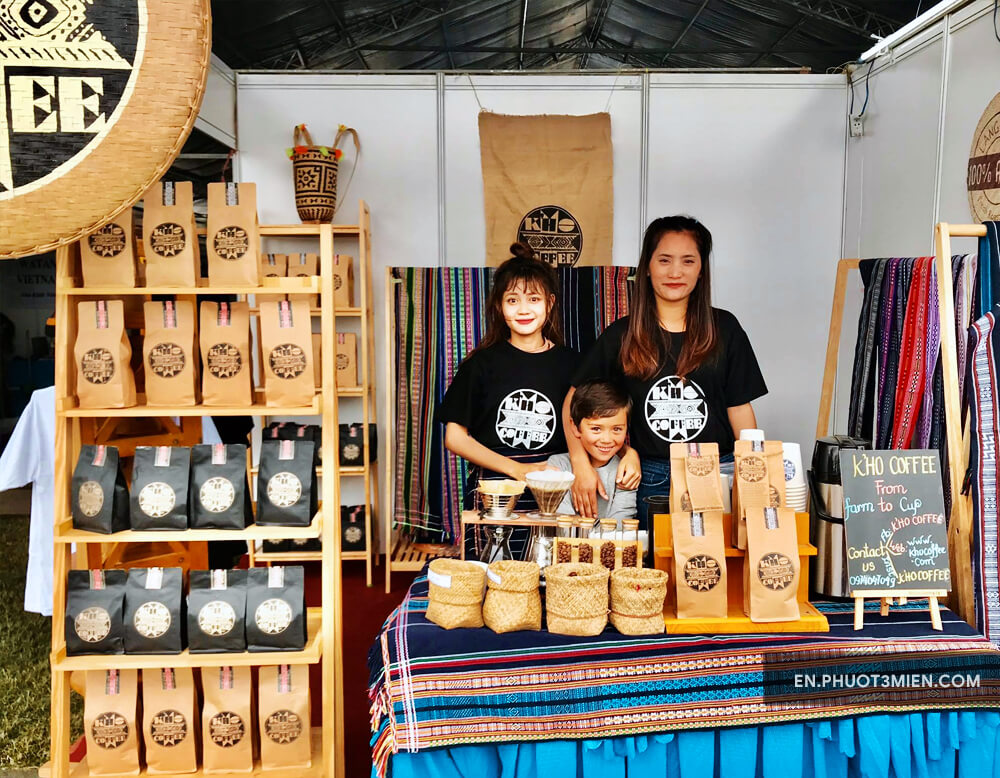
On the tour, I selected the beans. Defected beans must be separated and will be sold to another target market. Those that are qualified will be roasted and stored on shelves as specialty coffee. Tons of beans are selected manually in the cabinet. They are the beautiful result of the whole hard-working year of the K’ho farmers! Ms. Rolan’s mother-in-law (a retired American designer), while selecting the bean with me, pointed over the garden behind the cabinet to show me the coffee plants. ‘Peanuts are grown on the ground. That way, grass won’t be your trouble anymore. Peanut leaves also add more nitrogen to the soil, helping your coffee grow well’, said she. ‘Chemicals are not preferred at all!’
Fanpage: https://www.facebook.com/khocoffee
Another K’ho Farm
We were having breakfast in the charming room of Brew and Breakfast Hostel while listening to the owner’s story. He sadly recalled a fire that burnt down all the coffee warehouses weeks ago in K’ho village. It was not Ms. Rolan’s farm, but a neighbor’s. Nick, an English barista who settled down in Da Lat, referred to the fire as the flame of humanity.
Many years ago, the owner of this farm, similar to many other farmers, was not aware of the value of his coffee. He earned a measly living and was not able to support his family life. Fortunately, a charity organization came and instructed him on how to strengthen the production process. At the same time they helped to link farmers and buyers without any intermediaries. His earnings boosted a hundred-fold.
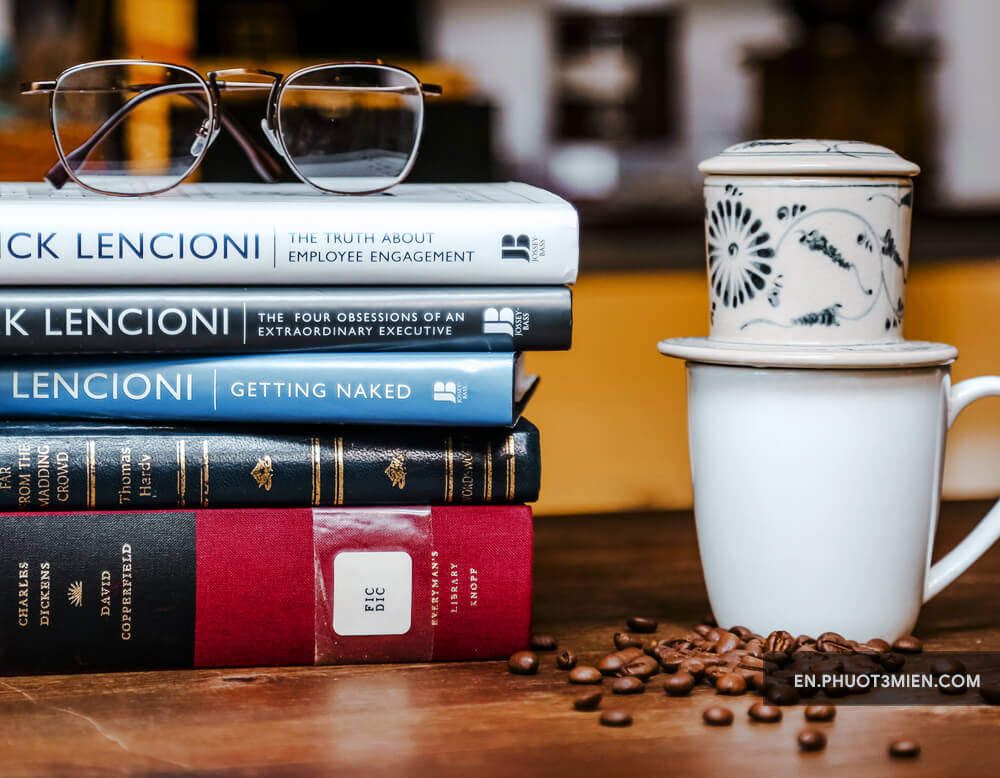
KKday is a travel APP platform offering over 20,000+ online products such as: tickets for amusement parks, outdoor services, sightseeing tours, culinary experiences, transportation, accommodation, courses, and local culture... Currently, there is a summer promotion with discounts up to 50% and coupons up to 250K VND off.

Attractive discount codes such as: 100K VND off for new accounts, 150K VND off summer promotion, 250K VND off, KKday birthday celebration...
Ironically, this new year of 2018 treated his farm with a terrifying fire in January. The fire didn’t harm anyone, but the whole warehouse, containing their livelihood for the coming year, collapsed. Baristas from top specialty cafes in Saigon, right after the news, actively raised funds to support the farmers. But the magic is larger than that. At the time of the fire, the farm founder was in Lao to help other Laos farmers just the way he was helped before. On receiving the bad news, farms in Lao donated coffee to his farm, totaling up to an amount larger than that was burnt. The warehouse was then rebuilt to a better standard. This is what the power of love, caring, and sharing can do.
Son Pacamara Farm
Uncle Son is an energetic and enthusiastic coffee farmer. I could not forget his warm greeting when he first welcomed us to his farm – a lovely Arabica farm located 20 minutes from Da Lat center by car. You have two choices at Son Pacamara: either visit the coffee farm or if you can’t make time, spend a Sunday morning in his coffee showroom right on Le Hong Phong Street, Da Lat City.
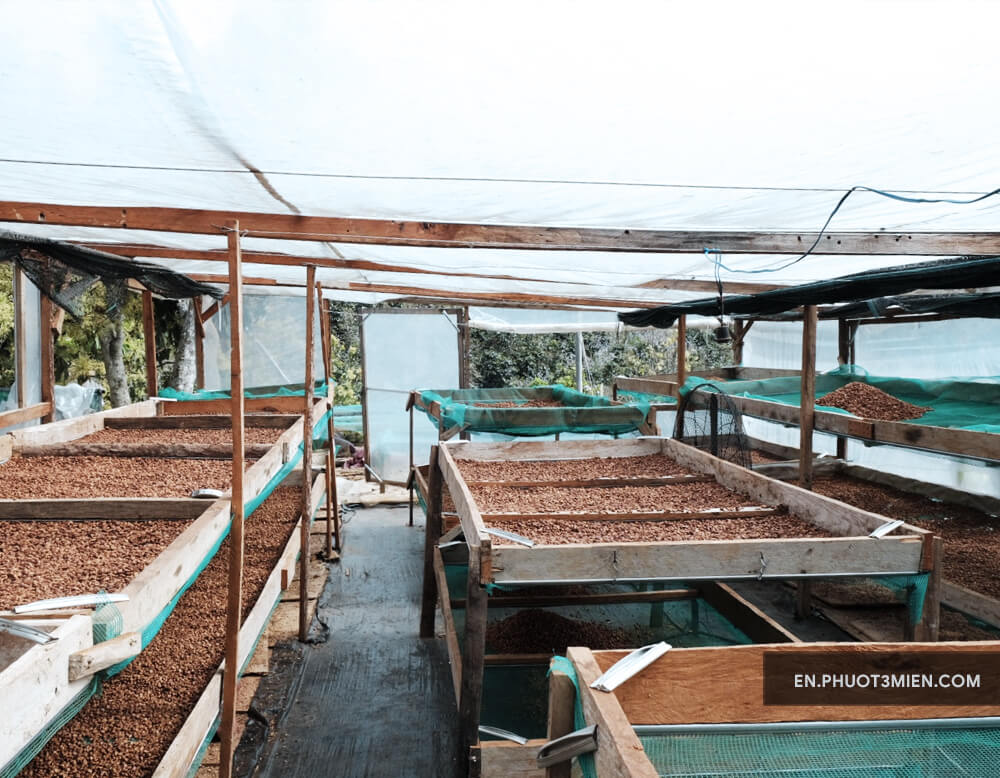
That morning I watched Uncle Son making coffee with our traditional Vietnamese filter—the phin. There is no way we can extract the most out of the beans with a phin. But there are ways to make it taste good, including roasting the bean more and adding condensed milk. The morning sun danced across the phin filter as Uncle Son prepared the coffee. Aunt Mai (Uncle Son’s wife) gently lent me her coat to keep warm. Not large, the coffee room was warm and full of light in the morning, a non-erasable memory.
You should contact Uncle Son from Facebook to make sure if he could host you a tour.
Website: Son Pacanama Farm
Cau Dat – Xuan Truong Co-operation
After a short talk with the respectful owner of The Green Coffee – a newly established coffee brand focusing on clean coffee in Da Lat, we had a chance to visit coffee farms in Cau Dat. Cau Dat is known for Arabica Coffee thanks to its height of 1,600 meters above the sea. For years, farmers in the place have been gathering together to strengthen their production.
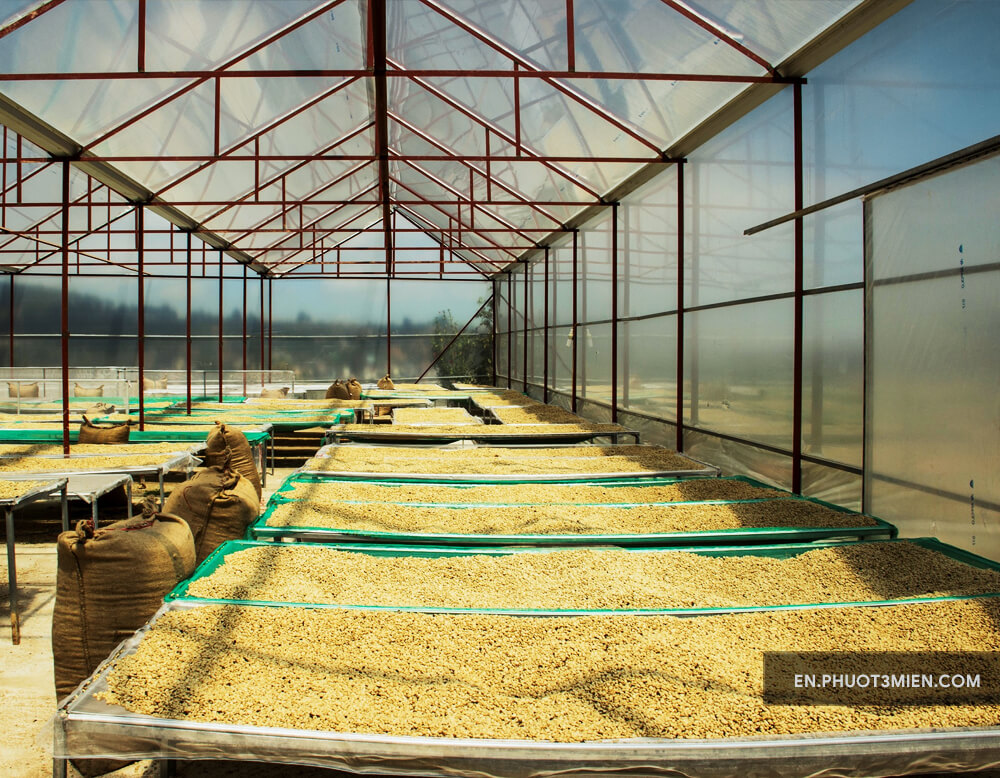
In 2013, Cau Dat – Xuan Truong received the Fair Trade Certificate, reassuring their well-organized operation and high-quality production process. You can book with them in advance to enjoy their coffee tour.
Website: Cau Dat – Xuan Truong Co-operation
A farm must uphold the following standards to receive the Fair Trade Certificate:
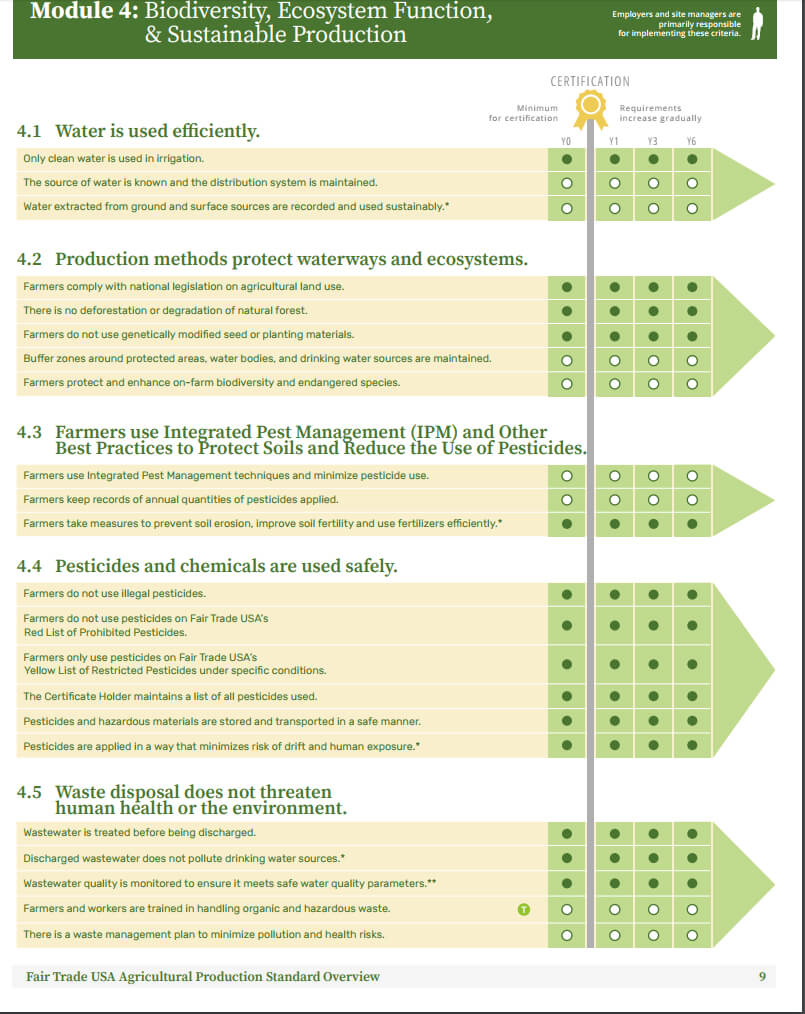
There are several more coffee farms you could discover in Da Lat, such as booking a tour with Brew and Breakfast or taking a taxi to Cau Dat Farm, to name a few. If you are not familiar with coffee but want to explore; I recommend K’ho Coffee Farm (book in advance) or to book with Brew and Breakfast if you have a group of 4 people or more. Take your time to savor a tasty, clean and socially responsible cup of coffee. After attending such tours, I hope you will be more mindful of the coffee you choose and pay more favors to coffee shops that are trying to bring clean coffee to us, the consumers.
If you enjoyed reading this article and would like some more fun info about what to see, do, and eat (and a bunch of interesting cafes!) in Vietnam, follow us at the Travel Blog!
